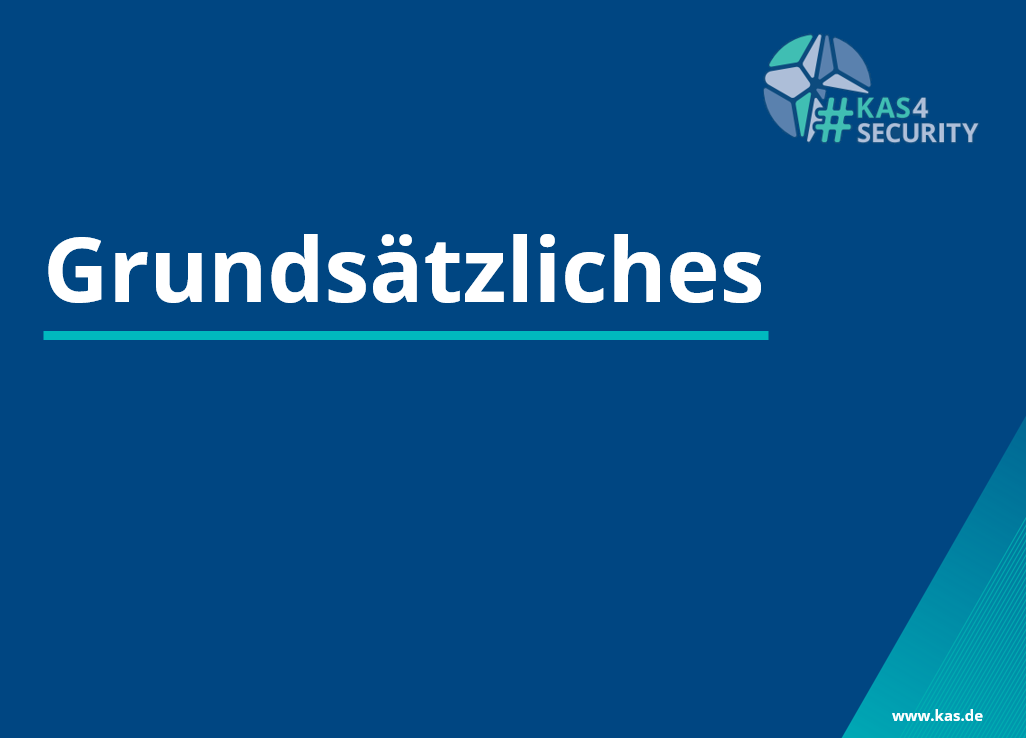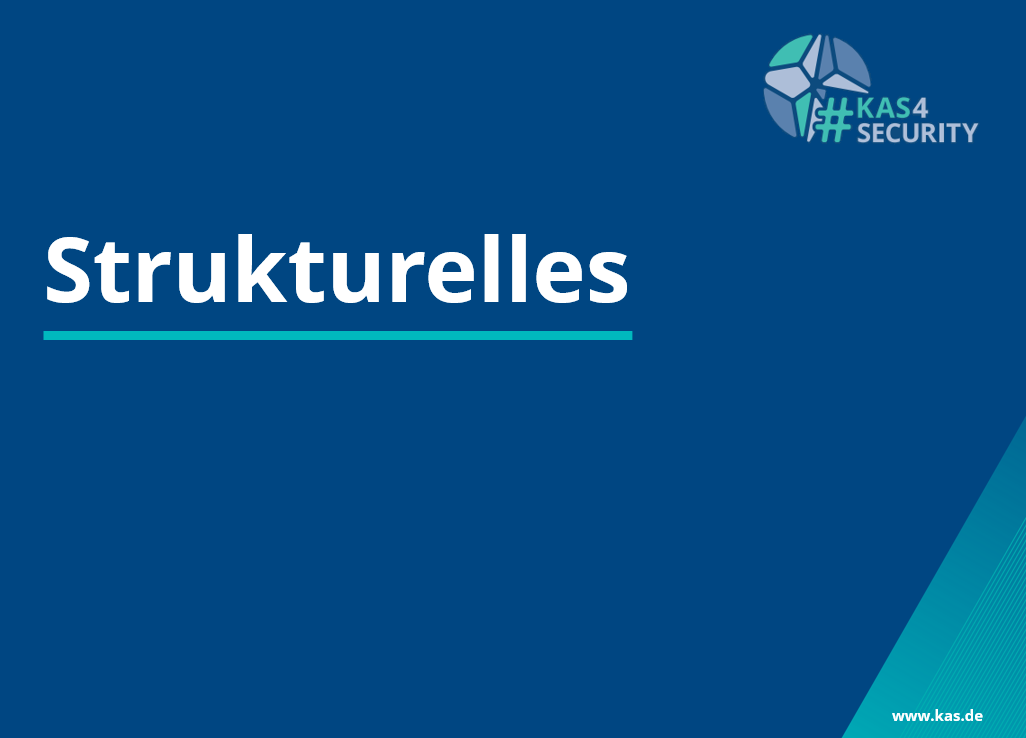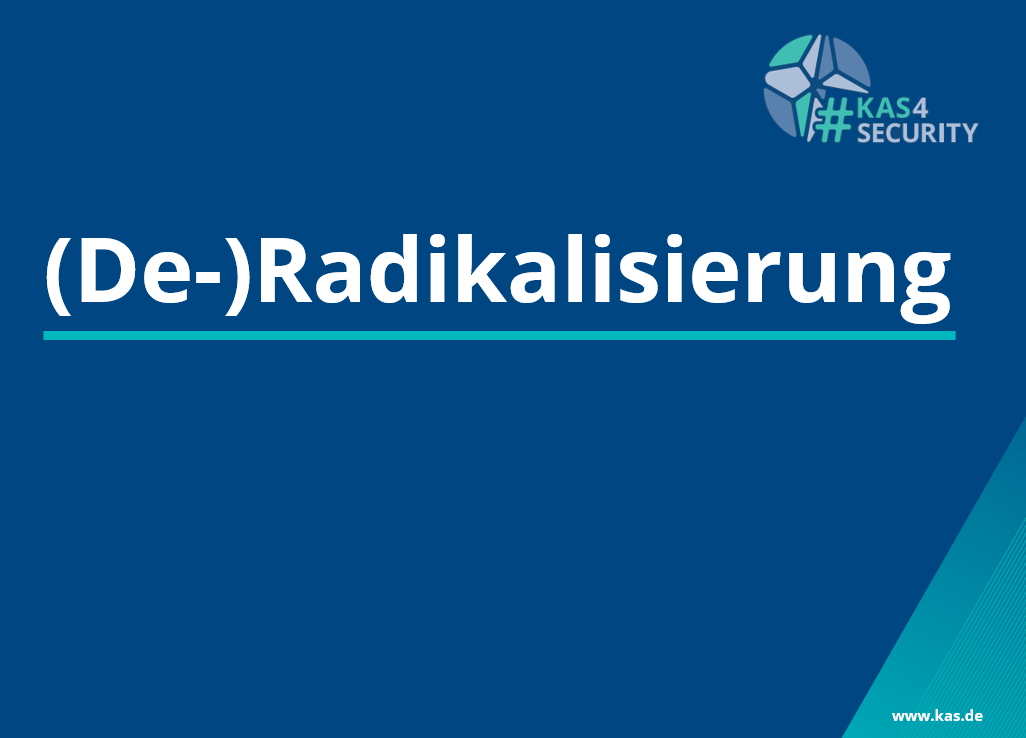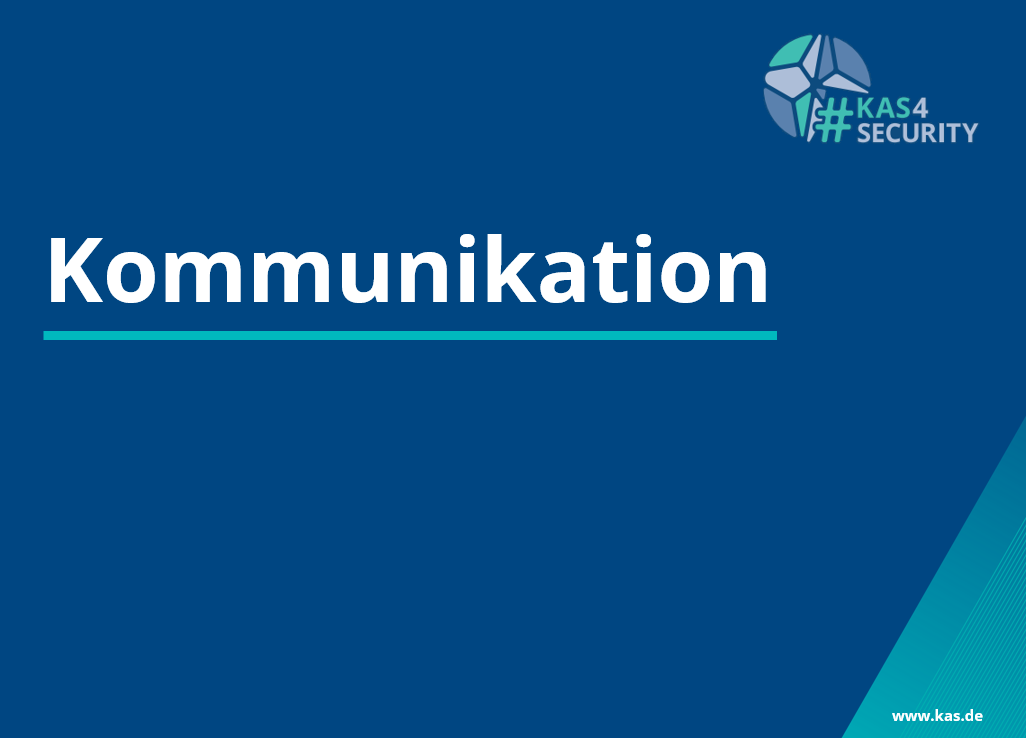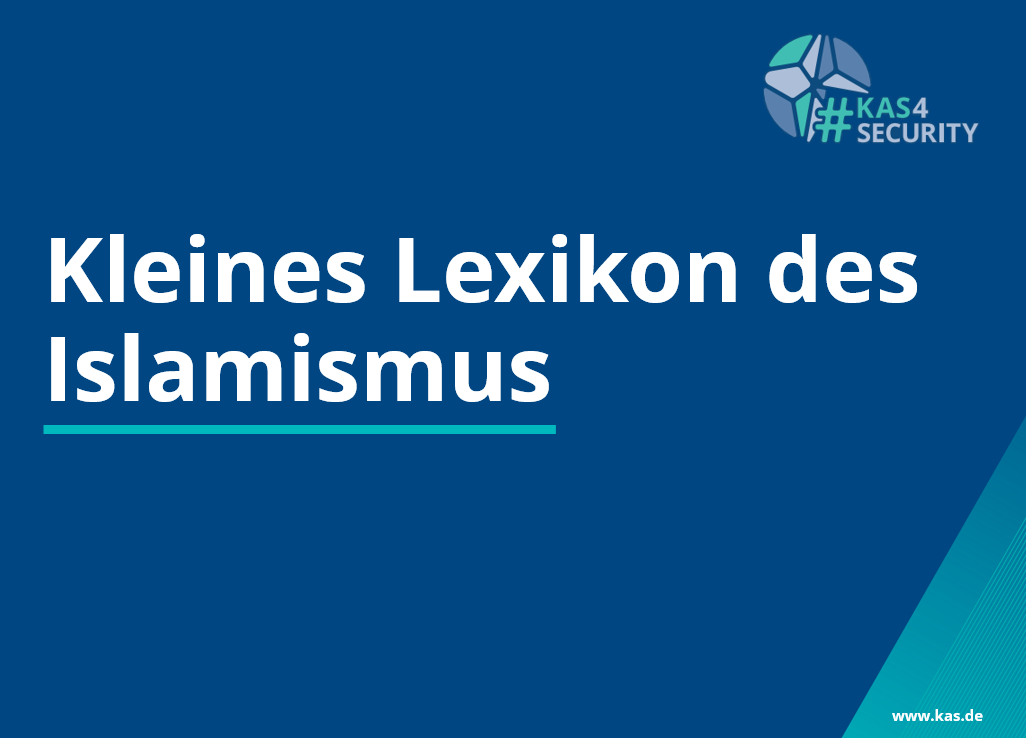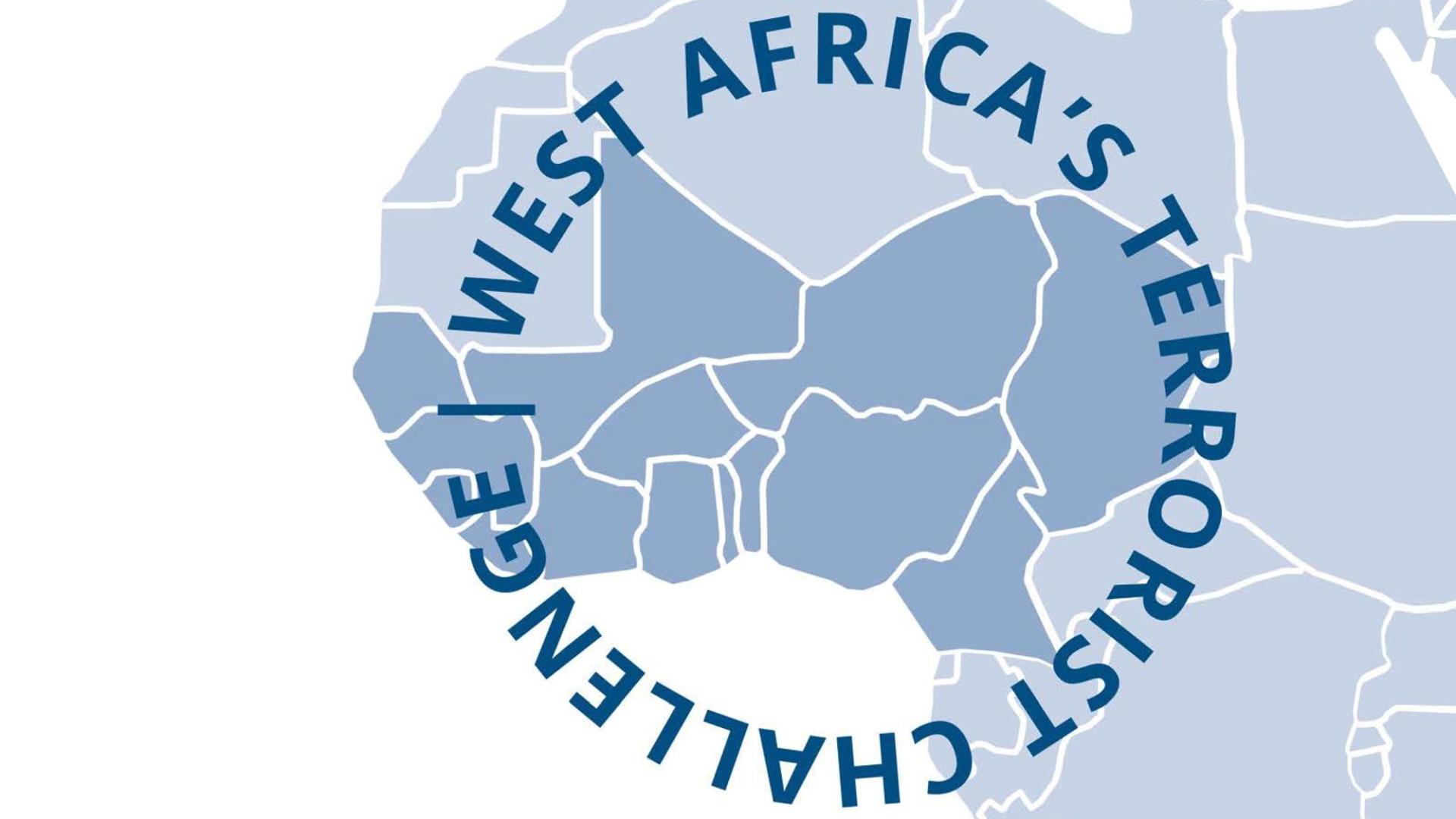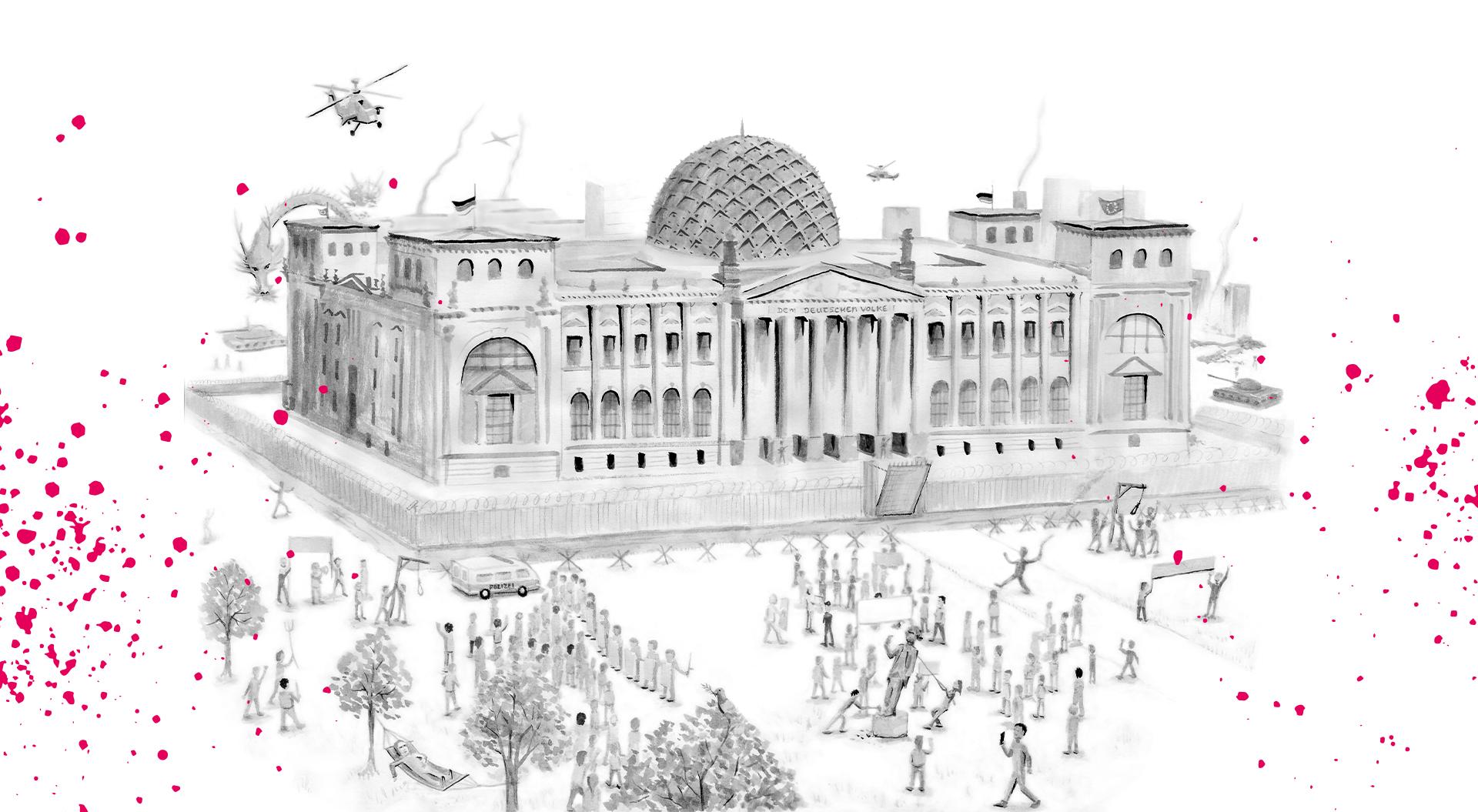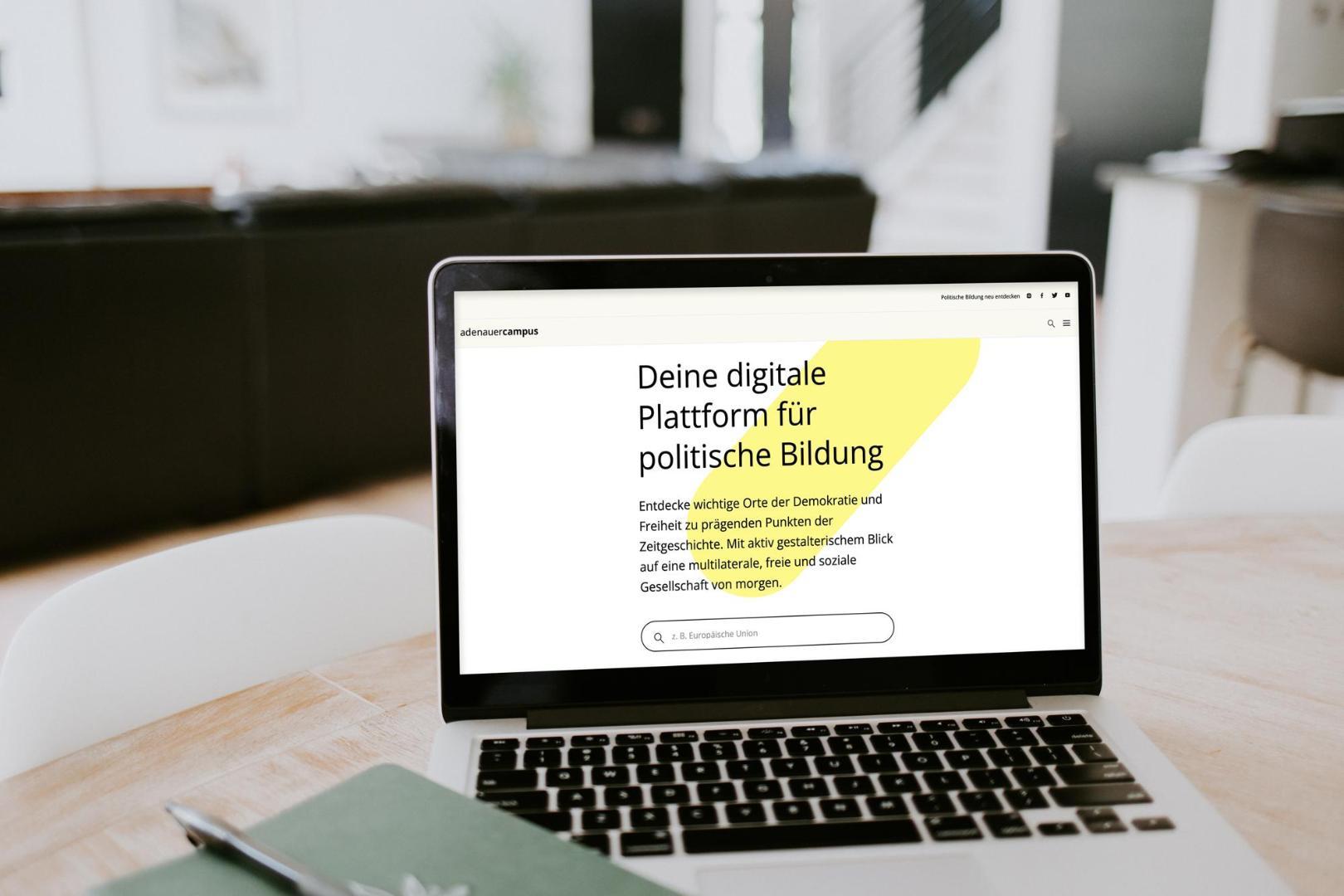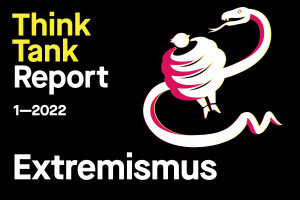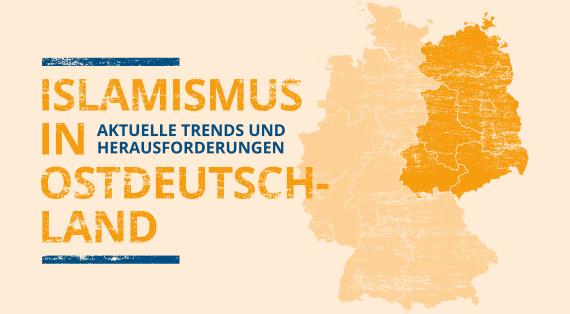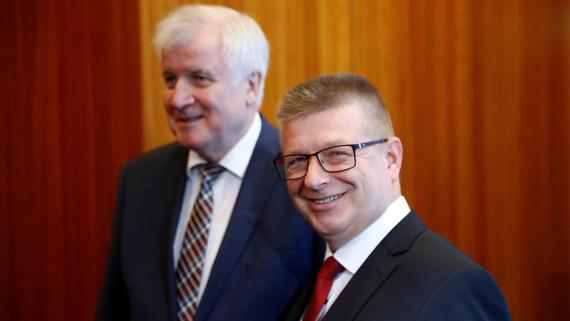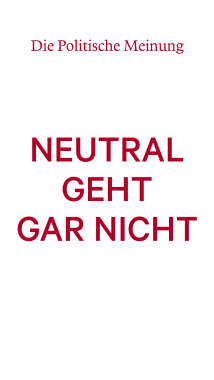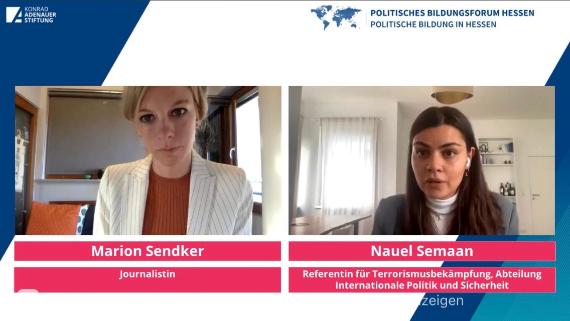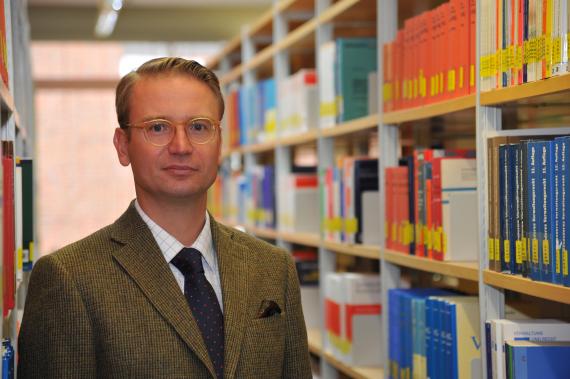Even in Germany, we have to expect that an Islamist attack could happen any day.
At a glance
- Islamist extremism ranges from non-violent movements right through to terrorist jihadism. However, all forms of Islamism are united by their rejection of the liberal democratic basic order.
- In essence, the political ideology underpinning Islamism aims at reorganising the state and society on the basis of values declared to be Islamic.
- On the international front, the fight against Islamist terrorism in its core areas needs to be part of strategic approaches to tackle the causes of terrorist activities in the West.
- In terms of domestic policy, politicians and authorities also must identify, observe and combat long-term attempts at infiltrating state, democratic institutions at an early stage.
- The Konrad-Adenauer-Stiftung fundamentally opposes political extremism. We therefore promote debate on the phenomenon of Islamism and play a role in preserving democracy.
Content
2. Not losing sight of the islamist threat
3. Mission democracy! Us against islamist extremism
4. Our offers and projects on the topic
5. Publications, events and media contributions on the topic
Concept and problem
For decades, the research community has been discussing the definition and meaning of the terms Islamism and political Islam. Here, the demarcation of religion and politics plays a particularly decisive role. The repeated revival of this discussion is directly dependent on the global political situation: the economic and political situation in Islamic countries and the current danger posed by violent (Jihadist) Islamism. The most recent debate equates the terms “political Islam” and “Islamism” in distinguishing them from the religion of Islam. It describes it as a political ideology or movement that aims to transform state and society on the basis of values declared as Islamic (Andreas Jacobs and Annette Ranko).
Islamist extremists – just like right-wing extremists and left-wing actors – are outside society’s tolerance zone, and challenge our democratic society and the democratic constitutional state. In Germany, Islamism can contradict the existing liberal democratic basic order by opposing the sovereignty of people, freedom of opinion, equal rights as well as the separation of state and religion as laid down in the Basic Law (Verfassungsschutzbericht 2020) (Annual Report on the Protection of the Constitution). The Islamist spectrum ranges from non-violent Islamism – which poses the danger of infiltrating democratic institutions – right through to violent Islamism, Jihadism, which represents a terrorist threat.
Not losing sight of the islamist threat
Jihadist organisations such as al-Qaeda and the Islamic State brought the Islamist threat directly to the West – to the USA and Europe. Even though, at least since the attacks of 11 September, international politics and its security authorities have been strongly influenced by the fight against Islamist terrorism and its origin, Islamism, they failed to contain terrorism in its core areas.
It is therefore essential for the security of Germany and Europe to continue this fight. Abroad, German foreign, security and development policy must not lose sight of developments in the core areas of terrorist organisations, and need to take them into account in their strategic approaches, so as to counter the causes of terrorist activities in the West.
At home, policymakers and authorities need to remain vigilant, and continuously observe both violent and non-violent Islamism. This must also be a priority when public threat perception decreases again due to longer periods without terrorist attacks or the increasing threat from other extremist phenomena. The long-term infiltration of state, democratic institutions by Islamist actors can create a fertile breeding ground for terrorist activities that cannot be ignored. What is more, the combating strategy must focus on preventing the radicalisation of vulnerable groups in order to prevent an increase in extremist potential.
Mission democracy! Us against islamist extremism
As the Konrad-Adenauer-Stiftung, we stand against all forms of extremism and align our work accordingly. In cooperation with experts, politicians, associations, organisations, and citizens, we encourage discussion on this phenomenon Islamist Extremism and play our role in preserving democracy.
Fundamentals
In the “Fundamentals” chapter, we look at fundamental questions of definition. The first question to arise is: What does “Islamism” actually mean, and how is it distinguished from Islam? Besides fundamental questions regarding definition of the term and its classification in the history of ideas, certain aspects within the political ideology of Islamism are considered, too.
Structural
In the “Structural” chapter, we clarify the breath of the spectrum of Islamist groups. Key questions that will be illustrated in the portraits of individual groups and currents are as follows: How did they each come about? By what principles of faith are their actions guided? What are their goals and by what means do they pursue them? And what importance needs to be attached to them both nationally and internationally?
(De)Radicalisation
The “(De)Radicalisation” chapter primarily deals with radicalisation processes of Islamists in Germany. The motives behind radicalisation can be political, religious, sociological or even psychological. Prevention approaches are also to be presented here: Which approaches are being pursued in Germany to prevent radicalisation? Currently, the German state and civil society are intensely preoccupied with questions of this kind.
Communication
The “Communication” chapter will take a closer look at various communication channels that serve Islamists in order to achieve their goals and propagate their ideology. What role does the internet play especially in recruiting new Jihadists? How do network structures work in the Salafist scene within German borders? And what forms of communication and advertisement do Salafists use in the German public sphere?
Small Encyclopaedia of Islamism
The “Small Encyclopaedia of Islam” explains terms that appear in Islamist linguistic usage time and again. They are mostly Arabic with religious origins, interpreted and instrumentalised by Islamists in a certain way; to justify violence for instance. Besides this, the most influential representatives of Islamist thought are portrayed – intellectuals as well as leaders of Islamist and terrorist organisations.
Publication projects
Democracy cannot be taken for granted. It needs to be lived, cultivated and, if necessary, actively defended – whether that be against Islamist tendencies or other dangers. In our publication projects, we deal with Islamist actors, networks and security situations in particularly endangered regions and discuss what effects this has on our democracy and to what extent German and European interests are affected and endangered.
“The Deteriorating Security Situation in West Africa”
The increasing threat of Islamic terrorism in West Africa prompted the Konrad Adenauer Foundation to initiate the project “The Deteriorating Security Situation in West Africa” together with the Counter Extremism Project. Within the framework of the project, we analyse the deteriorating security situation in the region in a total of twelve strategy papers and weekly social media reports and deal with general questions around the topics of security and counter-terrorism. The results of the analyses lead to concrete recommendations for action for German and European policy.
Learn more about “The Deteriorating Security Situation in West Africa”
Defensive Democracy
Russia’s attack on Ukraine has catapulted the question of the defensibility of democracy to the fore of public interest. Yet, tanks and rockets are not the only threat to our free society. Our democracy is exposed to many dangers, which are addressed in our book of essays and a major campaign.
Learn more about the topic “Defensive Democracy” or go directly to the essay collection “die wehrhafte(re) Demokratie” (The (More) Defensive Democracy).
Didactic offers
With our DigitalAkademie Pupil and Teacher Academies, we present pupils and teachers with a specific offer when it comes to preventing extremism online.
DigitalAkademie
The digital world presents teachers and pupils with enormous challenges. While digitalisation harbours great potential for unusual learning methods, teaching concepts, and varied methods, the internet is also a space of uncertainty, fake news and seduction.
Especially on the internet, Islamists spread their ideas and views in various formats such as video messages and online magazines in different languages. Via social media and their own websites and blogs, they give the global public access to their thoughts. As part of our Pupil and Teacher Academies, we clarify extremist methods on the internet, help to identify extremism on the internet and give teachers the tools to confidently address incidents and experiences with extremism in the classroom. Here you will find a wide range of services in the field of extremism prevention, with which we not only warn against this kind of influence, but also raise general awareness of the issue.
Didactic Teaching Material for the Classroom
On our learning platform, the Adenauer Campus, you will find teaching materials on the topic of Islamism, with worksheets, interactive graphics and media. We invite teachers, politically interested people and pupils alike to take a closer look at our interactive and free didactic offers.
Working group
Since 2015, the Working Group Terrorism and Domestic Security has been an established forum at the Konrad-Adenauer-Stiftung. It sees itself as a network for experts on these issues.
Working Group Terrorism and Domestic Security
The focus of the Working Group Terrorism and Domestic Security mainly lies on the threat of extremism and terrorism. Members of the Working Group regularly get together to exchange views on political developments and current problems and to work out solutions.
Learn more about the Working Group Terrorism and Domestic Security



